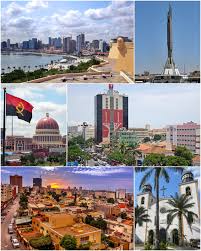
Introduction to Luanda
Luanda, the capital city of Angola, is not only the largest city in the country but also a vital economic and cultural hub in Southern Africa. As the political center of Angola, its relevance extends beyond its borders, shaping regional dynamics and influencing economic activities throughout the entire continent. Understanding the essence of Luanda is crucial for those interested in Africa’s fast-developing landscapes.
Economic Growth and Development
In recent years, Luanda has experienced significant growth due to oil and diamond revenues, which not only support the national economy but also contribute to the city’s booming construction and service sectors. According to government sources, the economy was projected to grow by 2.4% in 2023 as the country aims to diversify away from oil reliance. Investments in infrastructure have significantly improved the city’s skyline, with skyscrapers and modern amenities emerging alongside traditional markets.
Cultural Significance
Luanda is rich in cultural heritage, showcasing a blend of African traditions and colonial influences. The annual Luanda Jazz Festival and the Festival of Arts are crucial events that attract artists and tourists alike. Furthermore, the city boasts acclaimed museums, such as the Museum of the Armed Forces and the School of the Arts, which help preserve and celebrate Angola’s diverse history and artistic endeavors.
Challenges Facing the City
While Luanda’s economic growth is promising, the city also faces significant challenges, particularly in terms of infrastructure and public service delivery. With a population believed to exceed 8 million, rapid urbanization has resulted in inadequate housing and transportation facilities. The authorities are actively seeking solutions to combat these issues through improved city planning and international partnerships.
Conclusion
In conclusion, Luanda stands at a crossroads, balancing its rich cultural heritage with the demands of modern development. With ongoing efforts to diversify its economy and address urban challenges, Luanda is positioned to become an influential city on the African continent. For readers interested in the opportunities and complexities of African urban centers, Luanda offers a compelling case study of growth, culture, and resilience.



